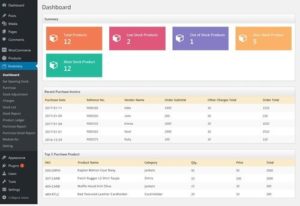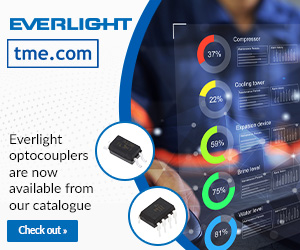
With a plethora of inventory system options you can find in today’s market, the selection process can get a bit more challenging. An inventory system’s price is not a joke. Hence, it pays to be knowledgeable of the important factors as you choose to ensure that it best fits your requirements and can deliver a maximized return of investment.
On that note, to go through the process safely and properly, this article shares with you the important dos and don’ts.
The Dos and Don’ts in Finding an Inventory System
- DO carefully weigh your options.
Once you search for inventory system options on the internet, every
potential website will be selling their product to you by showing you their
inviting write-up and impressive walk-through of the system. It is best to
expand your options better, i.e. 2-10 options perhaps, and compare and match
their offered features, advantages, and disadvantages, and price. However, you
have to make sure as well that the websites that make it to your final option
list are reliable and reputable. In this case, feedback and reviews about
software providers are readily available online, waiting for you to check out
and consider.
- DO opt for a cloud-based inventory system.
An inventory system is either a desktop-based or a web-based application. Basically, these two differ in terms of database and source-code storage location. In this digital age where people are connected to the internet most of the time through their desktop computers, laptop, or mobile devices, it makes more sense to have an inventory management software that is based in the cloud in some way. This will not only provide the ability to access the software regardless of location but will also provide the option to back up essential business inventory data and reduce the risk of data loss leading to issues with stock and order fulfilment.
- DO take integration into account.
As much as possible, choose an inventory system that is integration-ready; one that is able to work well with your other business systems in the company.
- DO try to be forward-looking while considering the cost.
Although an investment system comes with a hefty price tag, it is considered one of the best investments a company can make when switching to digital solutions. The enhanced efficiency and accuracy it can offer can greatly define the business’s profitability as the inaccurate, time-consuming, and unreliable approach of inventory management is omitted.
However, your job is to find an inventory system package that offers the best value for its price at the least. You’d know that an inventory system is worth considering, cost-wise, if it is not overpriced but its streamlining features can still guarantee compliance, accuracy, and reliability.
Note that if your business is still small and just getting started, the more you have to be cautious with your choice. Every feature contributes to the system’s price. Hence, if you want to make the best and most reasonable value of your investment, you should stick to the prioritized features at the moment and just gradually upgrade if need be.
- DON’T base your choice on price, brand, or popularity.
It is true that the price, brand, and popularity of an inventory system are also factors worth considering. However, they should not be the sole or primary basis of your purchasing decision.
The system’s brand is vital as it can say a lot about the provider’s reputation. Its popularity may likewise infer that it is truly worth trying out. However, these factors should only be secondary. While its price is usually indicative of its features and inclusions, there is still a likelihood that you will fall on a sneaky and dishonest provider that will only put your investment to waste.
Your main considerations should be the inventory system’s features and technical details. Make sure that they are the best match for your preferences and needs. If part of your digitalization project is to also invest in other digital solutions like accounting and ERP software, you got to make sure that your inventory system is integration-ready for that matter without compromising its usability and user-friendliness. Lastly, the provider’s supplementary technical support is also extremely important to ensure that no downtime from technical glitches will be experienced in the future. On that note, having a highly available and reliable technical support who can get back to you within minutes to an hour is going to be a big plus.
- DON’T be deceived by fraudulent and exaggerated marketing.
Part of thoroughly evaluating the inventory system you are eyeing on is knowing that relying on biased, “advertisy” write-ups on the system provider’s official website is not a clever decision. That said, you might want to check the reviews and feedback you can find on websites that the provider has no control of, e.g. Facebook, Twitter, YouTube, forums. If you are not that backgrounded about the factors you should be considering for an inventory system, you can also ask for inputs from people who had once been in your shoes.
We are not only talking about the usual banner or text ads kind of advertising here. Software providers also spice up the game by contributing paid reviews and rankings, favorable social media mentions. These are things you should be mindful of as well.
- DON’T underestimate your business’s need for a digital inventory solution.
Just because your business is small-scale, it does not mean you will not need an inventory system and you won’t be benefiting from it. Of course, businesses always start from the bottom. The successful ones never started instantly big. Your small operations will thrive with the right software in place and sooner or later, its potential to make your business a booming one will surely arise.
Keep in mind, though, that when you are considering to invest in a digital solution, you are actually opening your business for future expansion. It is the same thing with an inventory system. On that note, you have to keep away from systems that are not designed to be scalable or flexible as much as possible. You will want to end up with a system that can grow with the future growth of your company. Even if your business is still starting up, you still have to be careful with the choosing process.



















